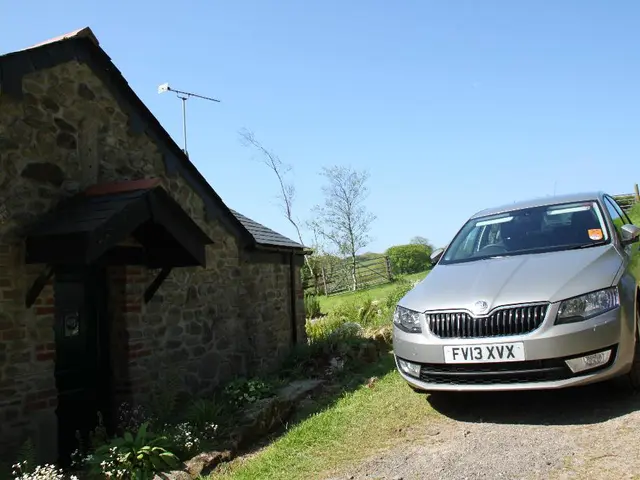Save Energy and Cash this Summer: Turn Your Heating to Summer Mode
Reducing expenses during the summer heatwave: maximizing energy efficiency and cutting costs on heating solutions
Grab some cash and slash your energy use with this smart tip: opt for summer mode on your heating system! Here's why, how, and when to get started.
Unnecessary energy consumption isn’t just a waste—it's your hard-earned money going down the drain. To avoid this in those warm months, apartments and homes ought to shift their heating systems to summer mode, as suggested by the Consumer Center in Baden-Württemberg.
So, what’s the big deal with summer mode? Sounds straightforward, right? Turn off the heating for the rooms, and focus on supplying hot water instead. But, let’s be honest, it doesn’t always work out like that.
The snag is, a self-regulating system still heats up when temperatures drop—say, during a cool night or a summer downpour. Often, homeowners don't even notice this, leading their smart heaters to burn energy needlessly. To get the scoop on this, we spoke to the German Association for Liquid Gas, who explained how outdoor temperature sensors can trigger the heater to work harder.
Before you ditch heating entirely for central hot water systems, remember the risks—cold water from the tap and even legionella growth in stagnant water unless you have decentralized hot water provided by a boiler or instant water heater. Keep the heating running just enough to maintain a comfy mid-temperature, say the experts.
When to embrace the Heat?
Turn your heating system to summer mode at the device itself or through a heating app. In many modern systems, summer mode is automatically engaged. Still, double-checking is a good idea. The perfect time to make the switch? Night temperatures hover consistently above 12 to 15 degrees, consumer advocates say. The savings can be substantial! Current forecasts suggest that up to 8% of annual heating costs may be slashed thanks to summer mode.
Open Those Valves!
Heed this advice from consumer advocates: don't set thermostat valves on heating bodies to zero—fully open them instead. This ensures a smooth transition back to the heating season and prevents valves from freezing in the summer position, which might cause heating failures in autumn. As for apartment dwellers, without access to the heating system, double-check that the heating has been switched before adjusting your thermostat valves.
Sources: ntv.de, awi/dpa, and additional insights from the UK's energy-saving guidelines
- Heating Bills
- Energy-saving Tips
- Hot Water Preparation
- Housing Insulation
- Weather Sensors
- Combi Boilers
- Home Maintenance
- Legionella Bacteria
- Renewable Energies
- Housing Management
- EC countries can implement stricter employment policies to encourage energy conservation, such as incentives for adopting summer mode on heating systems, to reduce overall energy consumption and lower heating bills.
- The finance sector could invest in renewable energy industries to support the development and widespread adoption of energy-efficient technologies like smart heaters, helping EC countries achieve their energy-saving targets and creating employment opportunities.








